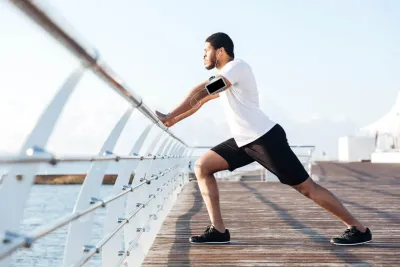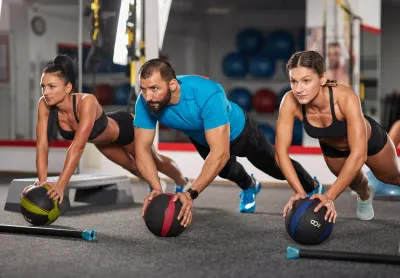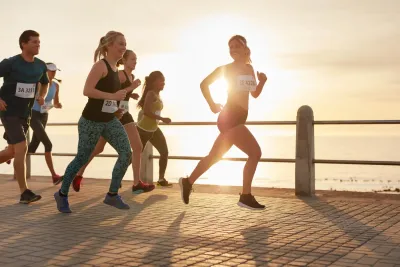How Sleep Temperature Impacts Athletic Performance & Recovery
Chilipad Editorial Team • Aug 04, 2025
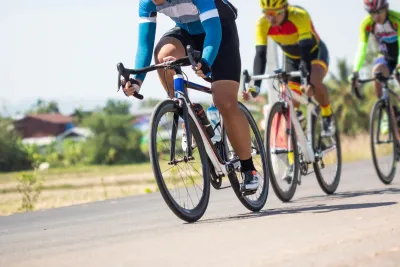
Key Takeaways
For athletes, sleep temperature is a performance variable, not a comfort preference.
- Sleeping at an optimal, cooler temperature supports recovery by promoting muscle repair and helping the body manage inflammation after training.
- Cooler sleep environments can support REM sleep, which plays a role in motor learning, reaction time, and sharp decision-making.
- Keeping your sleep environment cool may support heart rate variability (HRV), a common marker of recovery, readiness, and resilience.
- Temperature-controlled sleep helps athletes wake up feeling more rested, more alert, and better prepared to train or compete.
Sleep is a critical component of athletic performance, influencing everything from physical capabilities to mental acuity. For athletes, quality of sleep can significantly impact training, recovery, and overall performance.
One of the key factors affecting sleep quality is temperature. Understanding how temperature influences sleep can help athletes optimize their rest and recovery.
The Science of Sleep and Temperature
The relationship between the two are well-documented. The body’s core body temperature naturally decreases during sleep, which is essential for initiating and maintaining restful sleep. As the body cools, blood flow increases to the skin and extremities, allowing heat to dissipate through blood vessels.
This process not only helps regulate core body temperature but also supports melatonin production, which is essential for falling and staying asleep.
A study published in the Journal of Clinical Sleep Medicine indicates that maintaining a cooler sleeping environment can enhance sleep quality and duration. [1]
We use a lot of tools to get breakthroughs in performance. One of those tools is we use a Chilipad. This is a cooled mattress topper that goes underneath the athletes and it cools them while sleeping at night to increase deep sleep and accelerate recovery." - Sky Christopherson, USA Olympic Cyclist (YouTube)
Ideal Sleeping Temperature
Research suggests that the optimal sleeping temperature for athletes falls between 60-67º.
However, personalized sleep temperature can vary for each individual, depending on personal needs and circadian rhythm.
This range allows the body to cool down effectively, promoting deeper sleep stages, including slow-wave sleep (SWS) or Deep Sleep, which is crucial for recovery and performance. [2]
Optimize Your Recovery with Chilipad
Ready to take your performance to the next level? The Chilipad helps you dial in your ideal sleep temperature, so you can recover faster, train harder, and wake up stronger. Sleep like a pro—because peak performance starts at night.
Why Sleep Is a Game-Changer for Athletes
Sleep is not merely a time for rest; it is a critical period for recovery and performance enhancement. During sleep, the body undergoes various physiological processes that are essential for athletes.
Growth hormone (HGH), which plays a vital role in muscle repair and growth, is primarily released during Deep Sleep.
This hormone aids in the recovery of muscles and tissues that are stressed during training. Furthermore, it helps to replenish energy stores, allowing athletes to perform at their best during workouts and competitions.
Deep Sleep is also essential for restoring muscle glycogen, which fuels athletic performance.
Research indicates that athletes who prioritize sleep experience improved performance metrics, including faster reaction times, better accuracy, and enhanced endurance. A study found that athletes who increased their sleep duration to 10 hours per night improved their sprint times and overall performance. [3]
Elite athletes are often advised to prioritize sleep as much as training and nutrition, with some requiring nine or more hours of sleep per night.
What Happens During Deep and REM Sleep
Sleep consists of several stages, with Deep Sleep and REM (Rapid Eye Movement) Sleep being particularly important for athletes.
- Deep Sleep: This stage is crucial for physical recovery. During Deep Sleep, the body focuses on repairing muscles, synthesizing proteins, and releasing growth hormones. It is also during this stage that the immune system strengthens, helping athletes fend off illnesses that could disrupt their training.
- REM Sleep: This stage is essential for cognitive functions, including memory consolidation and emotional regulation. REM Sleep helps athletes process information learned during the day, which can enhance skills and strategies in their sport. Additionally, REM Sleep plays a role in mood regulation, reducing anxiety and stress levels, which are critical for optimal performance.
Both are vital for an athlete's overall mental well-being, and disruptions in these stages can lead to significant performance declines.
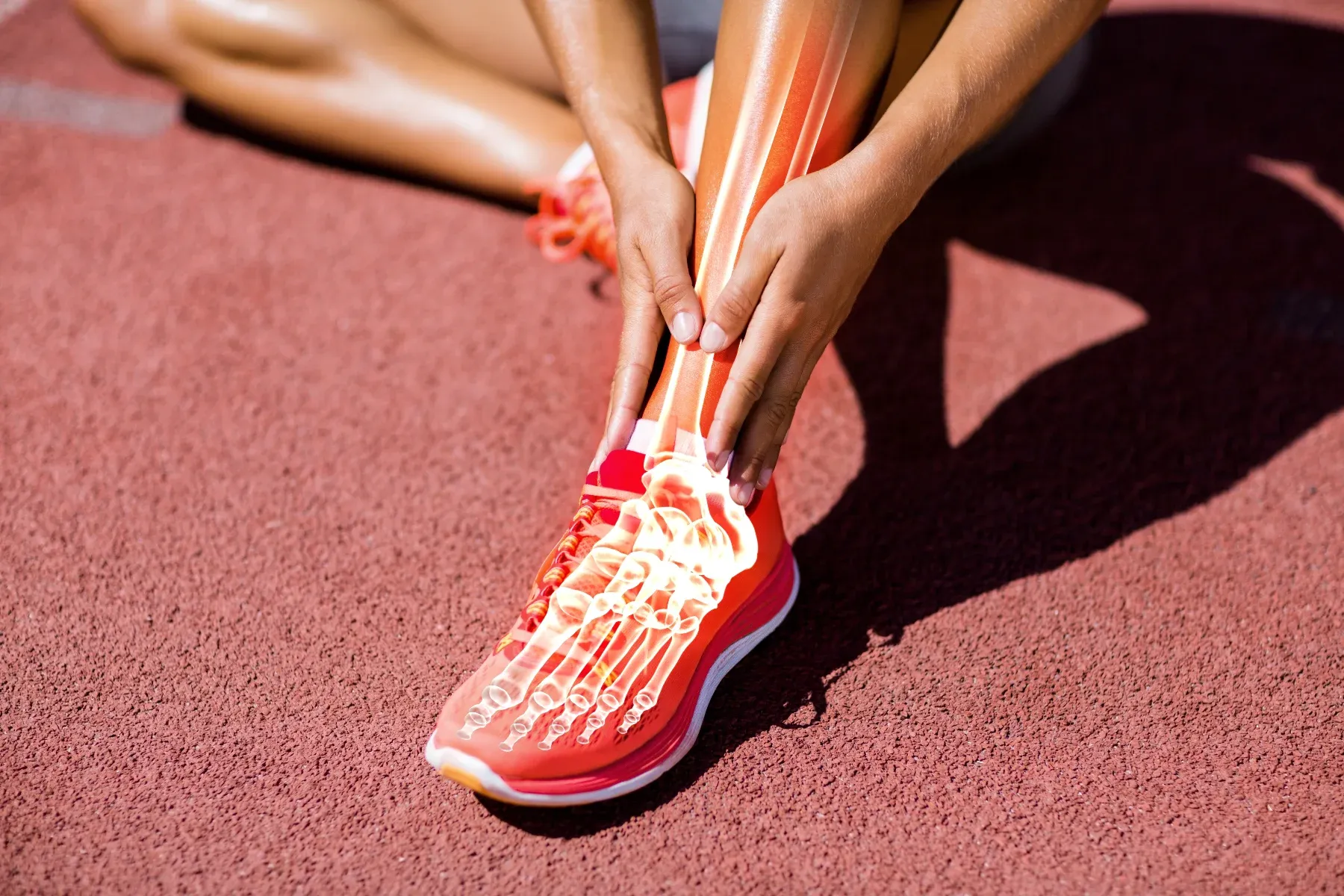
How Lack of Sleep Impacts Training Gains and Injury Risk
Insufficient sleep can have detrimental effects on an athlete’s training gains and increase the risk of injuries. Inadequate sleep and sleep loss can impair both physical and cognitive performance. When athletes do not get enough sleep, they may experience:
- Decreased Muscle Recovery: Lack of sleep can hinder the body’s ability to repair and build muscle, leading to slower recovery times and diminished training gains. Athletes may find themselves feeling fatigued and unable to perform at their peak.
- Decreased Reaction Time: Fatigue slows neural processing, increasing the risk of missteps, falls, and sports-related injuries.
- Increased Injury Risk: Studies have shown that athletes who sleep less than the recommended amount are at a higher risk of sustaining injuries. A lack of sleep can impair coordination, reaction times, and decision-making abilities, making athletes more prone to accidents and injuries during training and competition. [4]
- Impaired Cognitive Function: Sleep deprivation negatively affects cognitive performance, leading to poor focus, slower reaction times, and impaired judgment. This can be particularly dangerous in high-stakes sports where quick decisions are crucial.
- Weakened Immune System: Poor rest makes you more susceptible to illness—forcing unwanted time off the training schedule.
Partial sleep deprivation and sleep restriction, even over short periods, can lead to cumulative deficits in performance and recovery.
Sleep is a game-changer for athletes of all levels—from weekend warriors to seasoned pros. It’s essential for recovery, peak performance, and staying injury-free.
Did You Know: Chronic sleep deprivation can also increase the risk of high blood pressure, further impacting overall health. Prioritizing sleep can lead to significant improvements in athletic performance and overall health.
Healthy Sleep Habits for Athletes
Establishing healthy sleep habits is a powerful edge for athletes aiming to boost recovery, minimize injury risk, and enhance overall health. Sleep isn’t just downtime, it’s active recovery time. Here’s how to make the most of it.
Stick to a Consistent Sleep Schedule
One of the smartest moves athletes can make for their body is sticking to consistent sleep and wake times, even on weekends and while traveling.
A steady schedule helps regulate your internal clock, making it easier to fall asleep, wake up refreshed, and stay in rhythm during training and competition.
This also helps eliminate the potential of getting poor quality sleep as your body knows what it can count on when it comes to rest and recovery.
Related Blog: Understanding Common Sleep Disorders
Create a Sleep-Friendly Environment
Whether you're at home or in a hotel room, try to make your bedroom the ultimate recovery zone. Keep it cool, dark, and quiet to help signal your brain it’s time to wind down.
Use blackout curtains and white noise machines, or experiment with other sound colors like brown, pink, or green noise, to help block out distractions and create a sleep-friendly environment.
Tip: The best bedroom temperature, typically 60°F to 67°F, can make a big difference in resulting in a good night's sleep.
Master the Pre-Bedtime Routine
What you do before bed matters. Skip the evening caffeine and nicotine, and try to unplug from screens at least an hour before sleep, it’s not always easy, but your body and brain will thank you.
Blue light from phones and tablets can disrupt your melatonin levels, making it harder to drift off.
Instead, build a relaxing bedtime routine, think light stretching, meditation, or reading your favorite book.
Practice Smart Sleep Hygiene
Sleep hygiene isn't just a buzzword, it’s your nightly game plan. Limit naps to earlier in the day, and only for 20-30 minutes, reserve your bed for sleep only, and create habits that send signals to your body when it’s time to power down.
A little consistency here can go a long way toward deeper, more restorative rest.
Explore our expert-backed tips and strategies on how to sleep better.
Aim for 7–9 Hours Per Night
That’s the gold standard for athletes. It gives your body enough time to repair muscles, reduce soreness, and consolidate memory, all key for peak performance. Skimping on sleep can raise injury risk and sabotage your gains, so make those hours count.
Prioritizing quality rest isn’t just a wellness trend—it’s a serious performance tool. With smart habits (like consistent sleep and even strategic naps), athletes can recover faster, train harder, and compete at their best.
Tip: Not sure which nap is best? From power naps to full sleep cycles, we break down the different types of naps to help you snooze smarter.
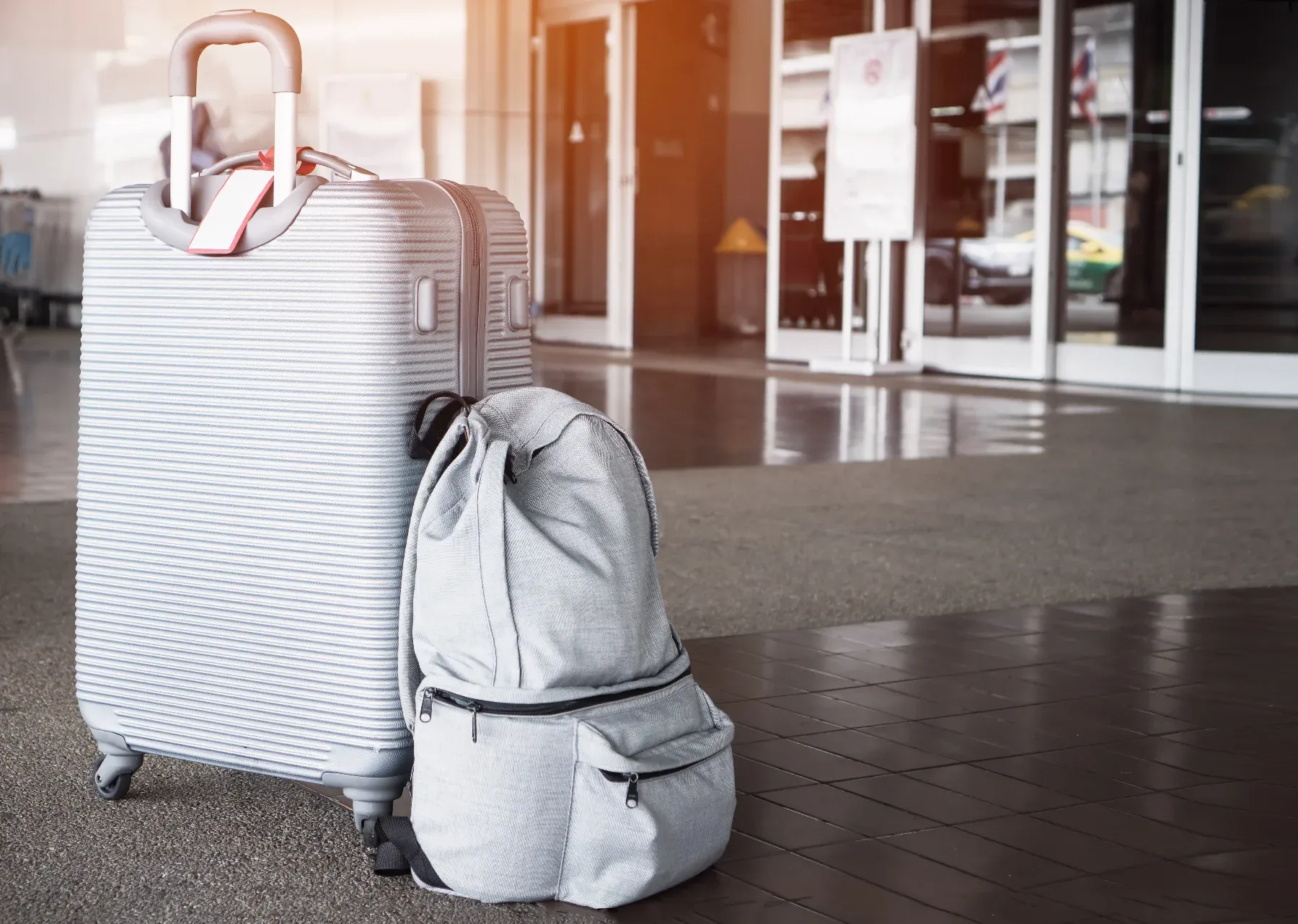
Temperature-Smart Sleep Routines for Travel & Competition
Amateur and professional athletes both live life on the move, just at different paces and altitudes.
Amateur athletes typically travel:
- Once or twice a month for regional competitions or tournaments
- Every few weeks during their competitive season
- Several times a year for nationals, qualifiers, or showcases
Their travel is often self-funded or team-supported, and usually involves weekend trips, road travel, and budget-friendly lodging.
Professional athletes, on the other hand, rack up serious miles:
- Weekly or even multiple times a week, especially in leagues like the NBA, NHL, or MLB
- Cross-country or international, depending on the season schedule
Adapting to Hotel Environments
Traveling for competitions often means staying in unfamiliar hotel environments, which can disrupt sleep quality. Athletes can adapt by creating a sleep-friendly environment in their hotel rooms. This includes adjusting the thermostat to maintain the ideal sleeping temperature, using blackout curtains to block out light, and employing white noise machines or earplugs to minimize noise disturbances.
Bringing familiar bedding or sleep accessories can also help create a sense of comfort and normalcy.
Did You Know: Athletes who have slept in cooler hotel rooms often report better recovery and uninterrupted sleep. [5]
Managing Jet Lag and Temperature Shifts
Traveling across time zones can lead to jet lag, which negatively impacts sleep quality and performance.
To manage jet lag, athletes should gradually adjust their sleep schedule a few days before departure, aligning it with the destination's time zone.
Staying hydrated and avoiding caffeine and alcohol close to bedtime can also help. Additionally, athletes should be mindful of temperature shifts during travel, as changes in climate can affect their ability to sleep.
Using temperature-regulating sleep technology, like the Chilipad, can help maintain a comfortable sleeping environment regardless of external conditions.
Portable Sleep Tech for Athletes on the Go
For athletes constantly on the go, portable sleep technology can be a powerful tool for staying rested and ready.
Devices like sleep masks, sleep trackers, travel pillows, and portable white noise machines can enhance sleep quality while traveling.
Related Blog: Why You Need a Sleep Tracker
By utilizing these technologies, athletes can ensure they get the restorative sleep they need, even when away from home.
Stay Hydrated—but Smartly
Hydration is crucial for muscle function, energy levels, and recovery, but timing is everything. Drink consistently throughout the day to stay balanced, especially after flights or workouts.
However, start cutting back fluids an hour or two before bed to prevent those annoying 2 a.m. bathroom runs that disrupt sleep and throw off your recovery game.
Related Blog: The 10 Best Drinks That Help You Sleep Better
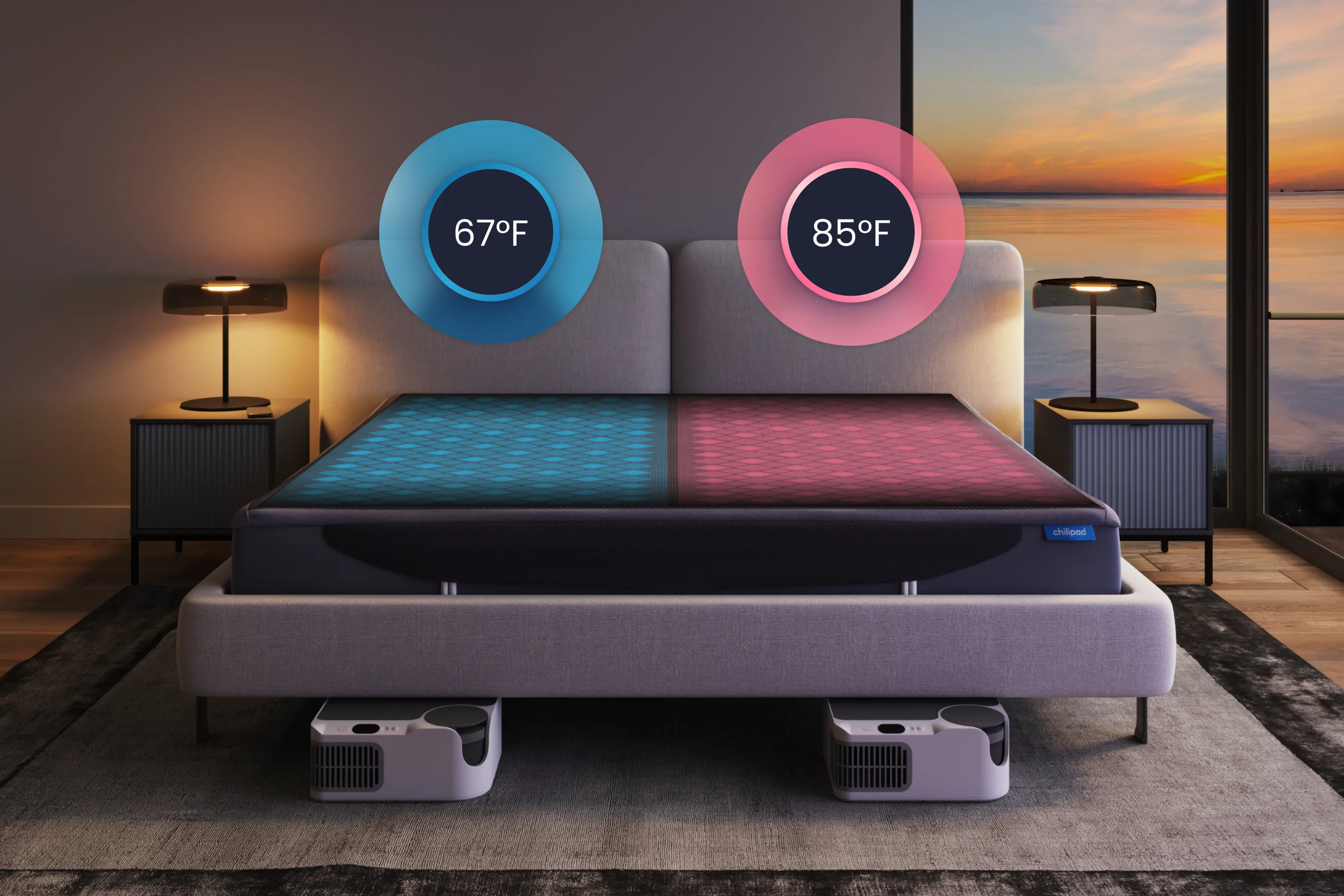
The Role of the Chilipad
For athletes looking to optimize their sleep environment, the Chilipad bed cooling systems offers a unique solution. This innovative bed cooling system lets users dial in their perfect sleep temperature, keeping their bed comfortably cool for deep, uninterrupted rest.
Keeping the bed at a consistent temperature, the Chilipad helps promote uninterrupted rest all night long.
Benefits of Bed Cooling Systems
- Temperature Regulation: The Chilipad can be set to maintain a consistent temperature throughout the night, helping athletes fall asleep faster and stay asleep longer.
- Improved Recovery: By promoting better sleep quality, the Chilipad can aid in muscle recovery and overall performance, allowing athletes to train harder and recover faster.
- Customization: Athletes can adjust the temperature settings to their personal preferences, ensuring a comfortable sleep environment tailored to their needs.
Don't Let Sleep Affect Athletic Performance
Optimizing sleep temperature is a crucial performance enhancer for athletes. For hot sleepers, it's important to maintain an ideal sleeping environment between 60-67°F. This not only improves the quality of sleep but also significantly impacts recovery, cognitive function, and overall athletic performance.
Ideal sleep temperature can help increase blood flow, which supports overall health and athletic recovery.
Just as athletes dedicate time and effort to their training regimens, prioritizing sleep should be viewed as an integral part of their training strategy as it can impact athletic performance.
By treating sleep with the same importance as physical training, athletes will unlock their full potential, reduce injury risks, and enhance performance on the field.
Giving quality sleep its well-deserved place in recovery and performance is increasingly recommended by the most elite sports medicine professionals to date.
Frequently Asked Questions: Sleep and Athletic Performance
How Does Sleep Temperature Affect Athletic Performance?
A cool sleep environment promotes deeper sleep, which boosts muscle recovery, energy restoration, and next-day performance.
What Is the Ideal Sleep Temperature for Athletes?
Somewhere between 60ºF and 68ºF is the sweet spot for most bodies—cool enough to help your core temp drop and recovery kick in.
Can Sleeping Hot at Night Disrupt Recovery?
Yes. When your body stays too warm, it delays deep sleep stages like slow-wave and REM, prime time for tissue repair and hormone release.
How Can Athletes Optimize Their Sleep Environment?
- Use a bed cooling system or breathable bedding
- Keep the room temperature between 60–68ºF
- Limit heat-trapping sleepwear
- Block out light and minimize noise
- Stay hydrated, but avoid heavy meals late
Peer-Reviewed Research References
-
Charest, J., Grandner, M.A.
Sleep and Athletic Performance: Impacts on Physical Performance, Mental Performance, Injury Risk and Recovery, and Mental Health.
Sleep Medicine Clinics, 2020.
Study Type: Narrative Review
Key Finding: Reviews evidence showing that insufficient sleep negatively affects athletic performance, increases injury risk, slows recovery, and impacts mental health, while adequate sleep supports physical and cognitive performance.
View Study
Source URL: https://pmc.ncbi.nlm.nih.gov/articles/PMC9960533/
-
Ogden, Joe.
Does My Athlete Need Sleep?
Freedom Physical Therapy Services, March 23, 2022.
Source Type: Expert Clinical Resource
Key Insight: Explains how adequate sleep supports athletic recovery, injury prevention, cognitive performance, and training adaptation, drawing on clinical experience and established sleep science principles.
View Resource
Source URL: https://freedompt.com/does-my-athlete-need-sleep/
-
Charest, J., Grandner, M.A.
Sleep and Athletic Performance: Impacts on Physical Performance, Mental Performance, Injury Risk and Recovery, and Mental Health.
Sleep Medicine Clinics, 2020.
Study Type: Narrative Review
Key Finding: Reviews evidence demonstrating that insufficient sleep negatively affects physical and cognitive performance, increases injury risk, impairs recovery, and impacts mental health outcomes in athletes.
View Study
Source URL: https://pmc.ncbi.nlm.nih.gov/articles/PMC9960533/
-
Ibid.
-
Costa, J.A., et al.
Comparing Sleep in Shared and Individual Rooms During Training Camps in Elite Youth Soccer Players: A Short Report.
Journal of Athletic Training, 2023.
Study Type: Observational Field Study
Key Finding: Found that sleep duration and quality differed between shared and individual sleeping arrangements during training camps, suggesting that room-sharing may influence recovery and sleep consistency in elite youth athletes.
View Study
Source URL: https://pmc.ncbi.nlm.nih.gov/articles/PMC9913052/







